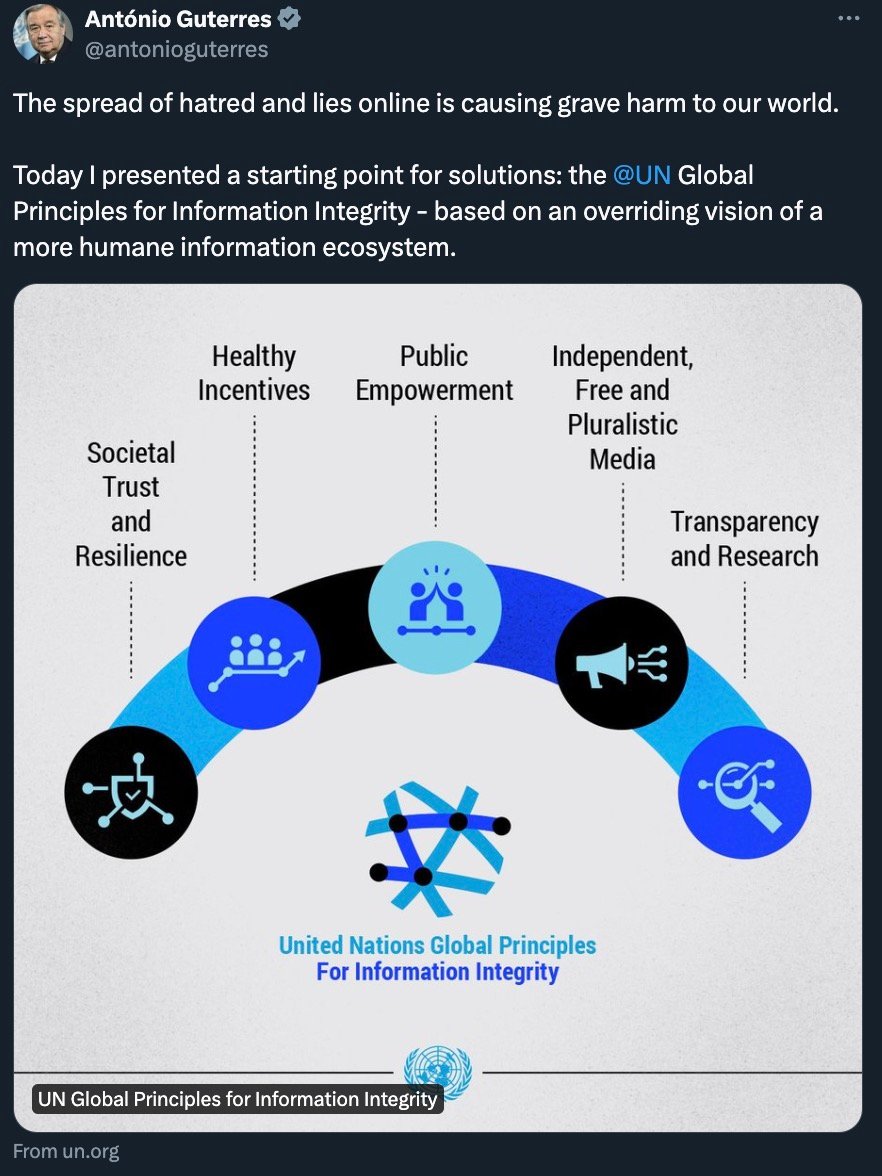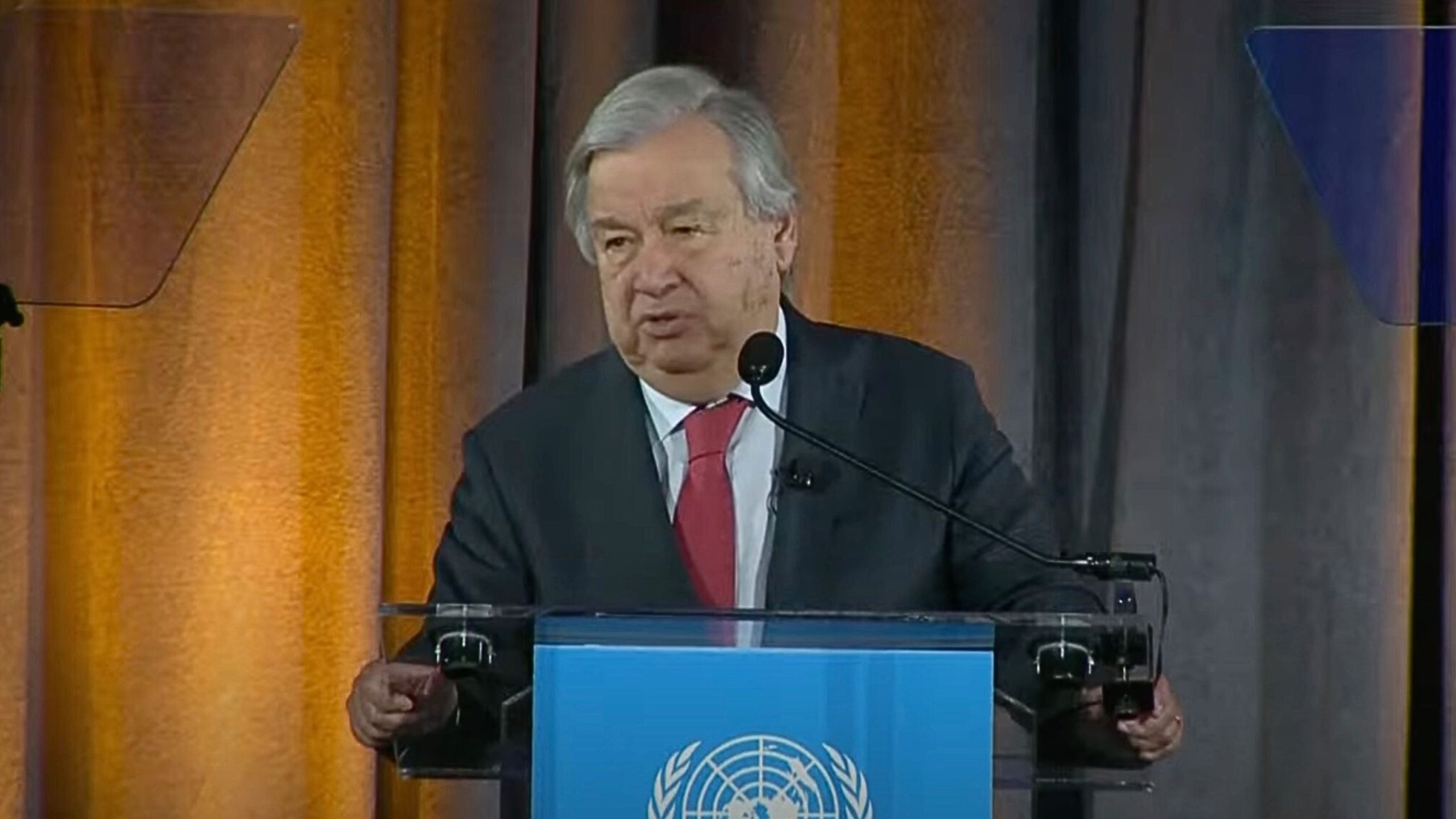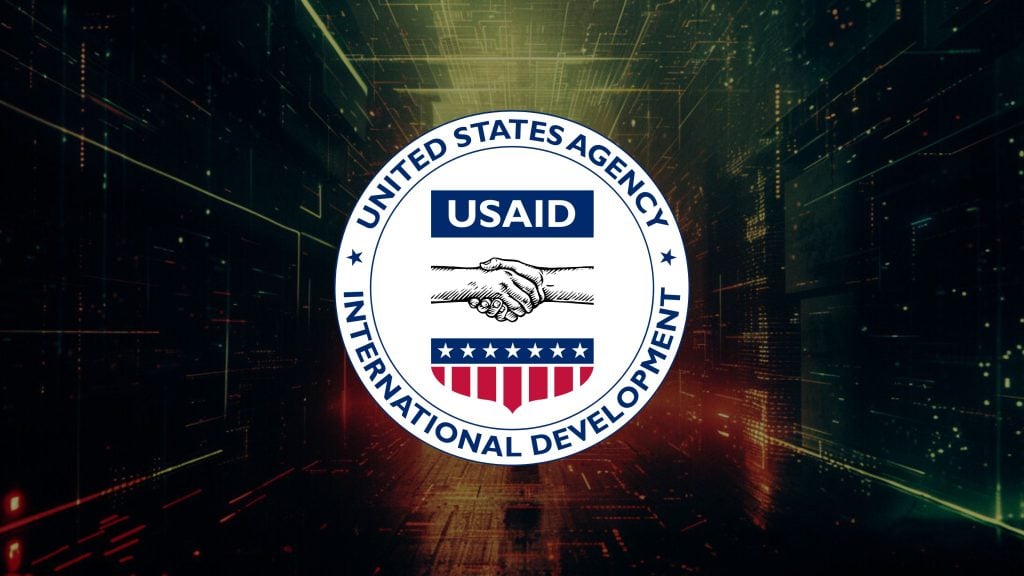The United Nations has unveiled the latest in a series of censorship initiatives, this one dubbed, the Global Principles for Information Integrity.
Neither the problems nor the solutions, as identified by the principles, are anything new; rather, they sound like regurgitated narratives heard from various nation-states, only this time lent the supposed clout of the UN and its chief, Antonio Guterres.
The topic is, “harm from misinformation and disinformation, and hate speech” – and this is presented with a sense of urgency, calling for immediate action from, once again, the usual group of entities that are supposed to execute censorship: governments, tech companies, media, advertisers, PR firms.
They are at once asked not to use or amplify “disinformation and hate speech” and then also combat it with some tried-and-tested tools: essentially algorithm manipulation (by “limiting algorithmic amplification”), labeling content, and the UN did not stop short of recommending demonetizing the “offenders.”
Presenting the plan on Monday, Guterres made the obligatory mention of doing all that while “at the same time upholding human rights such as freedom of speech.”

According to the UN secretary-general, billions of people are currently in grave danger due to exposure to lies and false narratives (but he doesn’t specify what kind). However, that becomes fairly clear as he goes on to mention that action is needed to “safeguard democracy, human rights, public health, and climate action.”
Guterres also spoke about alleged conspiracy theories and a “tsunami of falsehoods” that he asserts are putting UN peacekeepers at risk.
This is interesting not only because of the tone and narrative the UN chief chose to go with but also as a reminder that peacekeeping, rather than policing social platforms and online speech, used to be one of the UN’s primary reasons for existing and spending money member-countries taxpayer money.
Guterres revealed that the principles stand against algorithms deciding what people see online (another attack on YouTube, etc., recommendations system, for all the wrong reasons?). But he reassures his audience the idea is to “prioritize safety and privacy over advertising,” i.e., profit.
The next thing Guterres wants these decidedly for-profit behemoths, including advertisers, to do is make sure tech companies keep them abreast so as not to “end up inadvertently funding disinformation or hateful messaging.”
According to him, the principles are there to “empower people to demand their rights, help protect children, ensure honest and trustworthy information for young people, and enable public interest-based media to convey reliable and accurate information.”






















